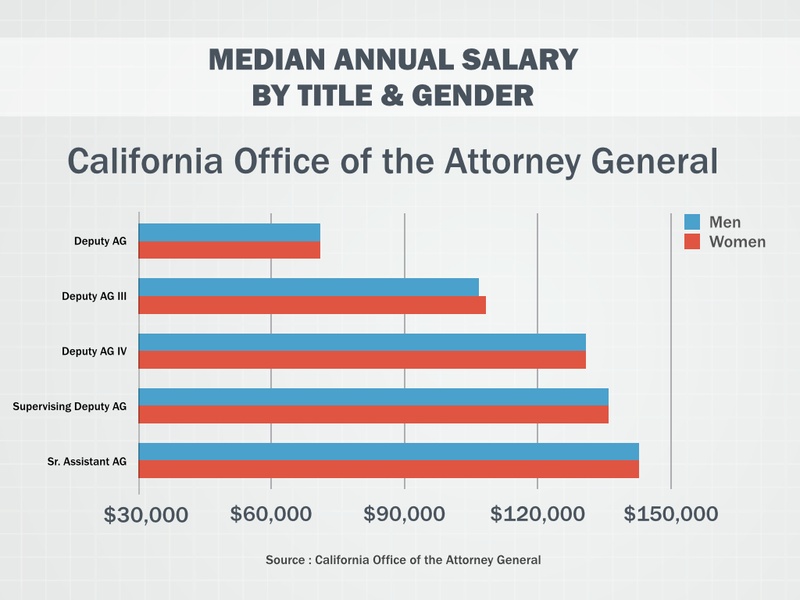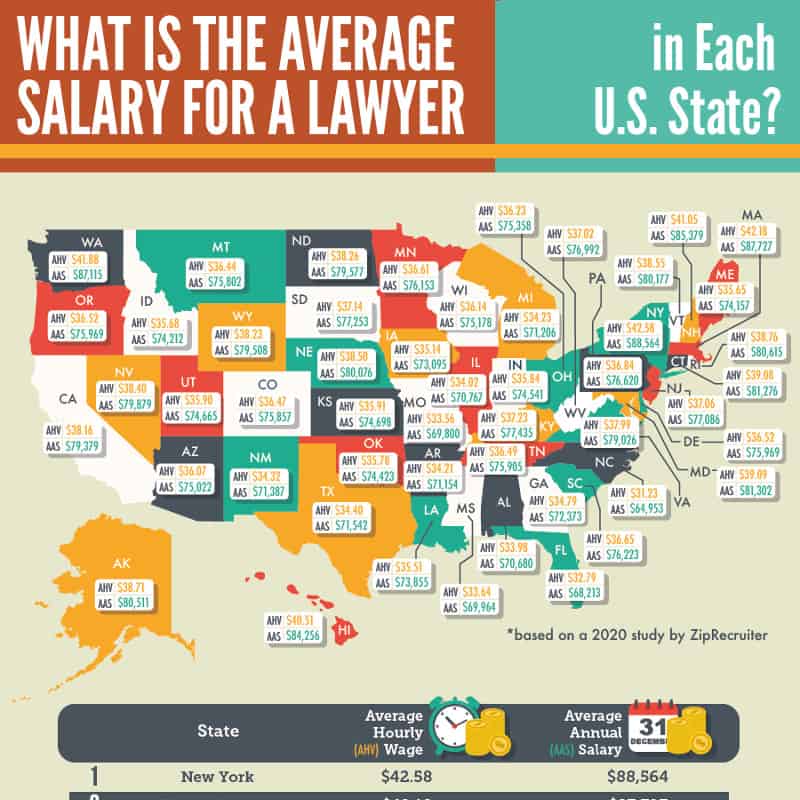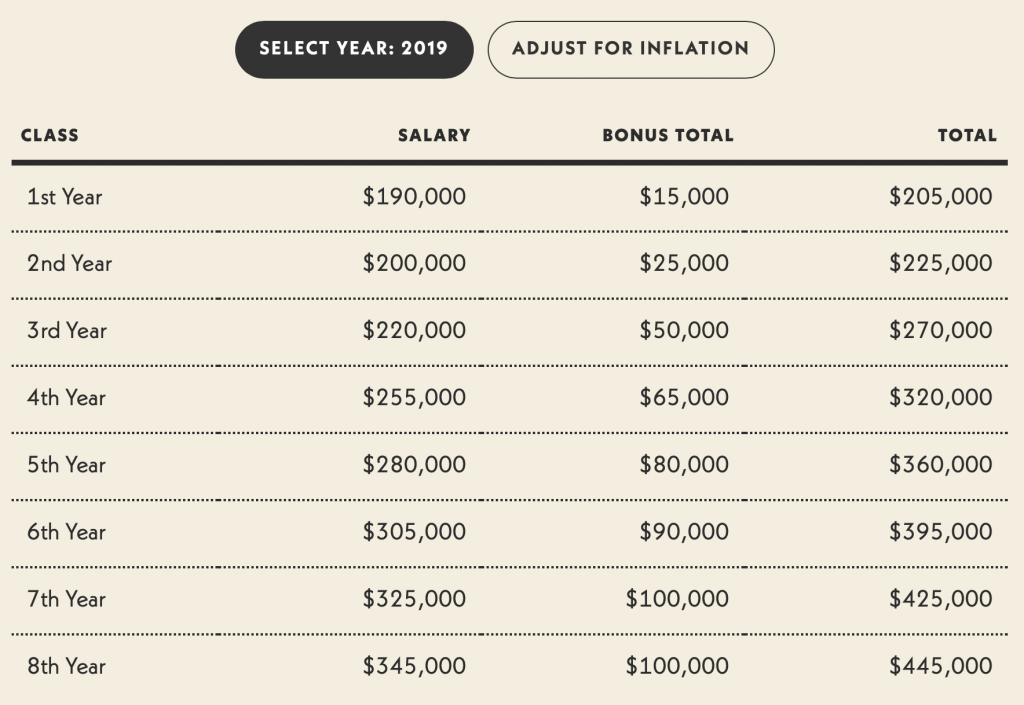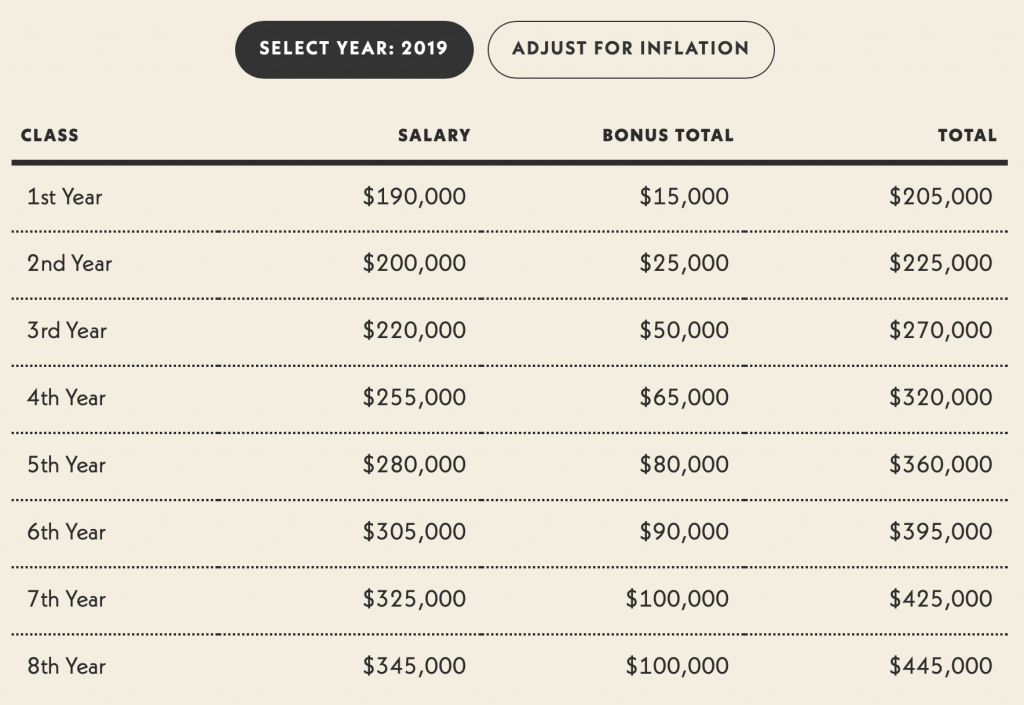Lawyer salary sets the stage for this enthralling narrative, offering readers a glimpse into a story that is rich in detail and brimming with originality from the outset. The legal profession is a complex and multifaceted field, with a wide range of career paths and compensation structures. Understanding the factors that influence lawyer salaries is crucial for aspiring legal professionals and those seeking to navigate the complexities of the legal job market.
This comprehensive exploration delves into the various factors that shape lawyer salaries, from experience and specialization to geographic location and firm size. We will examine salary ranges across different practice areas, explore compensation structures, and analyze trends in lawyer salaries. Our goal is to provide a clear and insightful understanding of the financial landscape within the legal profession.
Factors Influencing Lawyer Salaries

A lawyer’s salary is influenced by a variety of factors, each playing a significant role in determining their earning potential. These factors include experience, specialization, geographic location, practice area, firm size and prestige, and pro bono work.
Experience
Experience is a major factor influencing lawyer salaries. As lawyers gain more experience, their salaries tend to increase. This is because they develop greater expertise, build stronger client relationships, and command higher fees. The more years of experience a lawyer has, the more valuable they are to their clients and employers.
Specialization
Specialization in a specific area of law can significantly impact a lawyer’s earning potential. Specialized lawyers often command higher salaries due to their in-depth knowledge and expertise in a particular field. For example, lawyers specializing in intellectual property or corporate law often earn higher salaries than general practitioners.
Geographic Location
The geographic location of a lawyer’s practice can also affect their salary. Salaries for lawyers tend to be higher in major metropolitan areas like New York City, Los Angeles, and San Francisco, where the cost of living is higher and the demand for legal services is greater.
Practice Area
Salaries for lawyers vary widely across different practice areas. Some practice areas, such as corporate law, intellectual property law, and litigation, tend to have higher average salaries than others, such as family law or real estate law.
Firm Size and Prestige
The size and prestige of the law firm a lawyer works for can also influence their salary. Large, prestigious firms often pay higher salaries to attract and retain top talent. These firms typically have a higher volume of complex and high-value cases, which can lead to higher billing rates and therefore higher salaries for their lawyers.
Pro Bono Work
While pro bono work is unpaid, it can positively impact a lawyer’s salary expectations in the long run. By demonstrating a commitment to public service and legal aid, lawyers can enhance their reputation and build valuable skills and experience. This can make them more attractive to potential employers and clients, leading to higher earning potential in the future.
Compensation Structures for Lawyers
Lawyers are compensated in a variety of ways, with the most common being hourly billing rates, salaries, and a combination of the two. The specific compensation structure a lawyer receives can vary depending on their experience, specialization, location, and the type of law firm they work for.
Hourly Billing Rates
Hourly billing rates are the most traditional method of compensating lawyers. This structure allows lawyers to charge clients for the time they spend on their cases. Hourly rates are typically determined by a lawyer’s experience, expertise, and the geographic location of their practice.
The formula for calculating income from hourly billing rates is simple: Income = Hourly Rate x Hours Worked.
For example, a lawyer who charges $300 per hour and works 2,000 hours in a year would earn $600,000.
- Advantages: Hourly billing allows lawyers to be rewarded for their hard work and dedication. This structure also encourages lawyers to be efficient with their time, as they are only paid for the hours they bill.
- Disadvantages: Hourly billing can be unpredictable, as the amount of time spent on a case can vary significantly. Additionally, some clients may find hourly billing rates to be expensive.
Salary-Based Compensation
Salary-based compensation is more common for lawyers working in-house for corporations or government agencies. In this structure, lawyers receive a fixed annual salary, regardless of the number of hours they work.
- Advantages: Salary-based compensation provides lawyers with a predictable income stream, which can be beneficial for planning and budgeting.
- Disadvantages: Salaries are often fixed and may not reflect the amount of work a lawyer does. Additionally, salary-based compensation may not be as lucrative as hourly billing, especially for high-earning lawyers.
Bonuses and Performance-Based Incentives, Lawyer salary
Many law firms offer bonuses and performance-based incentives to motivate their lawyers. These incentives can be based on factors such as revenue generated, successful case outcomes, and client satisfaction.
- Advantages: Bonuses and performance-based incentives can provide lawyers with additional income and recognition for their achievements.
- Disadvantages: Bonuses and performance-based incentives can be unpredictable and may not be awarded consistently. Additionally, some lawyers may feel pressured to prioritize generating revenue over providing quality legal services.
Partnership Agreements
Law firms are often structured as partnerships, where lawyers share in the firm’s profits and losses. There are several different types of partnership agreements, each with its own financial implications.
- Profit-Sharing Partnerships: In this type of partnership, lawyers share in the firm’s profits based on their contributions.
- Equity Partnerships: Equity partners have a stake in the ownership of the firm and are entitled to a share of its profits.
- Non-Equity Partnerships: Non-equity partners do not have a stake in the ownership of the firm, but they may receive a share of the firm’s profits based on their contributions.
Trends in Lawyer Salaries

Lawyer salaries have been steadily increasing in recent years, driven by a combination of factors, including the growing complexity of legal matters, the rising demand for legal services, and the competitive nature of the legal market. However, the future outlook for lawyer salaries is uncertain, with several factors potentially impacting their growth trajectory.
Factors Driving Salary Growth
The legal profession is experiencing a surge in demand for specialized legal expertise. This surge is fueled by the increasing complexity of legal issues in areas such as technology, intellectual property, and international business. The demand for legal services is also being driven by an increase in litigation and regulatory compliance. The legal profession is becoming increasingly competitive, with law firms vying for top talent to attract and retain clients. This competition drives up salaries as firms seek to offer competitive compensation packages to attract and retain skilled lawyers.
Impact of Technology and Automation
The legal industry is undergoing a significant transformation due to the increasing adoption of technology and automation. This has led to the development of legal technology tools that can automate routine tasks, such as legal research and document review, which can lead to increased efficiency and cost savings for law firms. The use of legal technology can also lead to a decrease in the demand for certain types of legal services, such as those that involve repetitive tasks. However, the increasing use of legal technology also creates new opportunities for lawyers with specialized skills in areas such as data analytics, cybersecurity, and artificial intelligence.
Economic Fluctuations and Lawyer Salaries
Economic fluctuations can have a significant impact on lawyer salaries. During periods of economic growth, demand for legal services tends to increase, leading to higher salaries for lawyers. However, during economic downturns, businesses may reduce their legal spending, leading to a decrease in demand for legal services and a potential decline in lawyer salaries. In addition, economic fluctuations can impact the availability of jobs in the legal profession, with firms potentially reducing hiring or even laying off lawyers during periods of economic hardship.
Future Outlook for Lawyer Salaries
The future outlook for lawyer salaries is uncertain, with several factors potentially impacting their growth trajectory. The increasing use of technology and automation may lead to a decrease in demand for certain types of legal services, potentially impacting salaries in those areas. However, the increasing complexity of legal issues and the growing demand for specialized legal expertise are likely to continue driving salary growth in certain areas of the legal profession. The future outlook for lawyer salaries will also be influenced by economic conditions and the overall health of the legal market.
Last Word: Lawyer Salary

The journey through the world of lawyer salaries reveals a dynamic and ever-evolving landscape. From the foundational factors that influence compensation to the emerging trends shaping the future of the legal profession, understanding these intricacies is essential for both seasoned professionals and aspiring lawyers. By navigating the complexities of salary structures, navigating the job market, and leveraging the power of networking, lawyers can position themselves for success and achieve their professional aspirations.
While the average lawyer salary can vary widely depending on experience and specialization, those who focus on personal injury often command higher rates. If you’re considering a career in law, becoming an injury lawyer could be a lucrative path, as these cases often involve significant settlements and legal fees.
